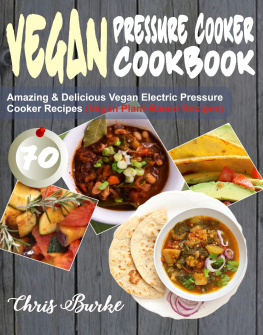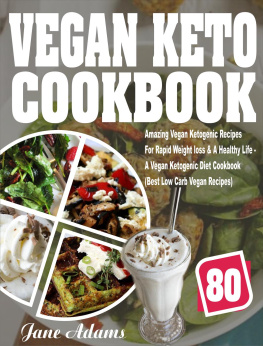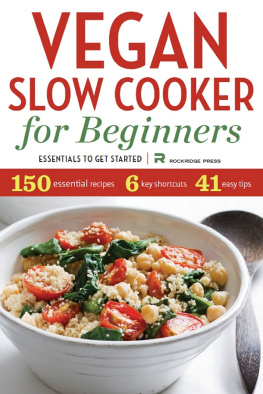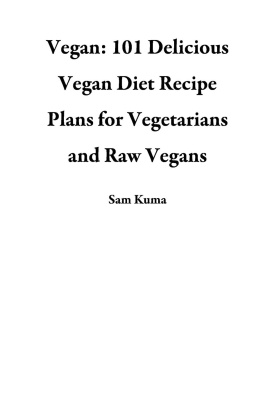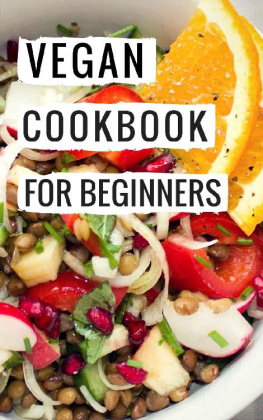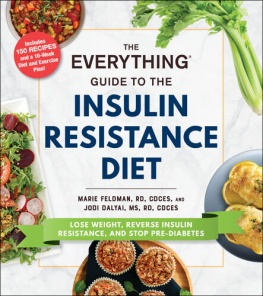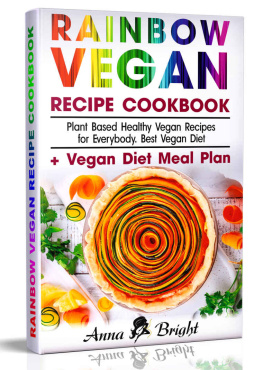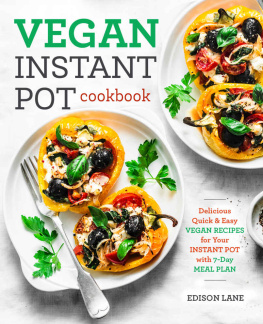Vegan Pressure Cooker Cookbook 70 Amazing & Delicious Vegan Electric Pressure Cooker Recipes (Vegan Plant-Based Recipes) CHRIS BURKE Copyright 2017 Chris Burke All rights reserved. No part of this publication may be reproduced, distributed, or transmitted in any form or by any means, including photocopying, recording, or other electronic or mechanical methods, without the prior written permission of the publisher, except in the case of brief quotations embodied in critical reviews and certain other noncommercial uses permitted by copyright law. Limit of Liability The information in this book is solely for informational purposes, not as a medical instruction to replace the advice of your physician or as a replacement for any treatment prescribed by your physician. The author and publisher do not take responsibility for any possible consequences from any treatment, procedure, exercise, dietary modification, action or application of medication which results from reading or following the information contained in this book. If you are ill or suspect that you have a medical problem, we strongly encourage you to consult your medical, health, or other competent professional before adopting any of the suggestions in this book or drawing inferences from it. This book and the authors opinions are solely for informational and educational purposes.
The author specifically disclaims all responsibility for any liability, loss, or risk, personal or otherwise which is incurred as a consequence, directly or indirectly, of the use and application of any of the contents of this book.
Contents
A way of life that rejects taking advantage of animals and stops all types of animal abuse, whether for amusement, clothing, food, or any other reason is known as "Veganism". The vegan diet is a plant based diet, which includes foods made from plants (fruits, nuts, grains and veggies). Consequently a vegan cannot eat animal based foods such as dairy products, eggs and meats. Several people choose the vegan lifestyle for so many different reasons, including health, environmental or ethical reasons.
Benefits Of The Vegan Diet & Lifestyle
R esearch shows that the vegan diet has proven to be a more effective choice for weight loss when compared to some other diets, invariably making it a healthy diet for losing weight.
Benefits Of The Vegan Diet & Lifestyle
R esearch shows that the vegan diet has proven to be a more effective choice for weight loss when compared to some other diets, invariably making it a healthy diet for losing weight.
The vegan diet naturally controls and reduces the amount of calories that people eat per time which results in loss of weight. The vegan diet also reduces the risk of type 2 diabetes, reduces blood sugar levels and increases insulin sensitivity. The vegan diet is loaded with so many other health benefits which includes reduced risk of developing Alzheimer's disease, increased kidney function, reduced pain and symptoms of arthritis, up to 15% reduced risk of cancer development, up to 42% reduced risk of heart diseases and 75% reduced risk of high blood pressure in vegans.
The Vegan Diet Meal Guide
T he healthy vegan diet is a varied yet balanced diet; with 5 or more daily portions of veggies and fruit varieties, yoghurts and soya drinks as dairy alternatives, pulses and beans as proteins, pasta, rice, bread, potatoes and other starchy carbs, unsaturated spreads and oils (eaten in little amounts), and 6-8 or more glasses of water per day. The following is a guide for the vegan diet plan to help on your journey as a vegan. b) Unroasted and unblanched nut butters and nuts: great sources of vitamin E, selenium, magnesium, fiber and iron. c) Peas, lentils, beans (legumes), these are very nutritious and filled with helpful plant compounds. d) Plant milks and yogurts that are calcium, vitamin D and vitamin B12 fortified e) Flaxseeds, chia, hemp (seeds) these are protein and omega-3 fatty acid filled. f) Nutritional yeast, this adds a cheesy flavor to vegan meals and increased protein content. g) Chlorella, spirulina (algae), great complete protein and iodine sources. h) Kombucha, kimchi, pickles, sauerkraut, natto, miso, tempeh, Ezekiel bread (sprouted & fermented plant based meals), that helps and improves the absorption of minerals. i) Quinoa, amaranth, teff and spelt, very high protein filled plant based meals. j) Pseudocereals, cereals and whole grains, good sources of Vitamin B, iron, fiber, complex carbohydrates and many minerals. k) Veggies and fruits, these increase every vegan's nutrient intake. l) Mustard greens, watercress, kale, spinach, bok choy (leafy greens) are calcium and iron filled plant based meals.
The Vegan Diet "Eat Nots"
T he vegan diet meal plan excludes animal based meals, such as: a) Quail, duck, goose, turkey, chicken, wild meat, organ meat, horse, veal, pork, lamb, beef, and all types of poultry and meat. b) Ice cream, cream, butter, cheese, yogurt, milk, and all types of dairy. c) Lobster, crab, mussels, calamari, scallops, squid, shrimp, anchovies, and all types of sea food & fishes. d) Royal jelly, bee pollen, honey and all types of bee products. e) Fish eggs, ostrich egg, quail eggs, chicken eggs and all types of eggs. f) Fish based omega-3 acids, animal based vitamin D3, L-cysteine, shellac, isinglass, carmine or cochineal, gelatin, egg white albumen, lactose, casein, whey and other animal based ingredients. f) Fish based omega-3 acids, animal based vitamin D3, L-cysteine, shellac, isinglass, carmine or cochineal, gelatin, egg white albumen, lactose, casein, whey and other animal based ingredients.
Next page
